
BECOME A BETTER COACH
The Football Development Model (FDM) equips you to coach football in new ways to develop better athletes.

A DEEPER APPROACH TO DEVELOPMENT
Coaching is about helping your players achieve success and making a positive impact on their lives.
The principles behind the Football Development Model help coaches become superior teachers that keep the game simpler, safer and more fun for their players. Keep reading to see how USA Football’s new coach curriculum – based on the principles of the model – will help you develop better players next season.
WHAT THE MODEL MEANS FOR COACHES
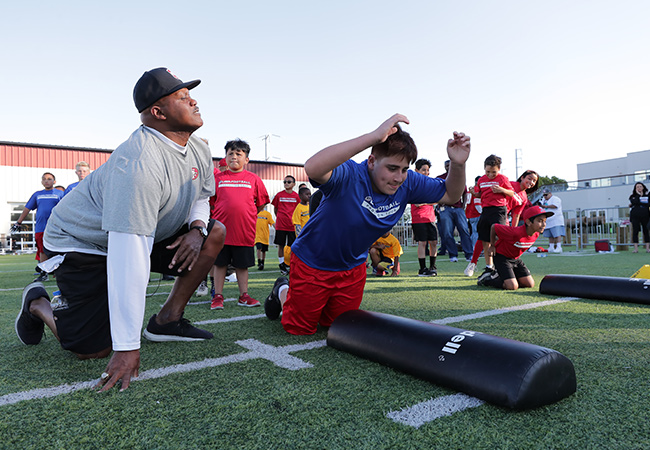
SLOWING THE GAME DOWN TO TEACH THE GAME BETTER
The Football Development Model introduces a variety of progressions based on athletes’ age, the skills they learn and their game type. These progressions are step-by-step approaches to development, designed to build better skill foundations and grow an athlete’s thinking, feeling and behaving abilities.
NEW RESOURCES TO ENHANCE YOUR COACHING
USA Football is developing a new coach curriculum. Coaches who get trained will receive the Coach Planner App, the Player Progression Guide, the Contact Manual and Practice Plans designed to provide an A-to-Z approach to skill development and age and game-type-appropriate teaching methods.
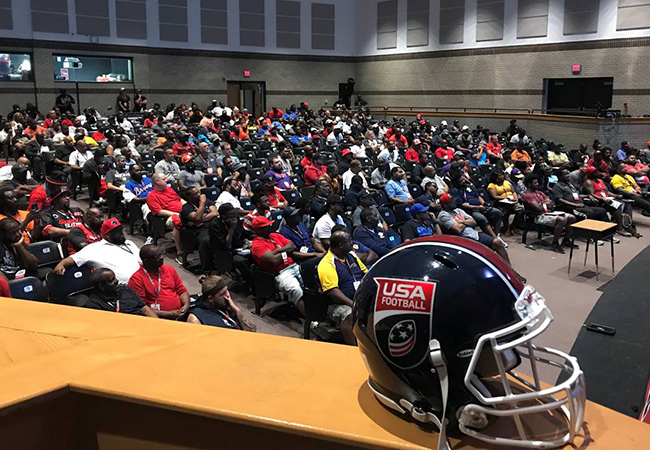
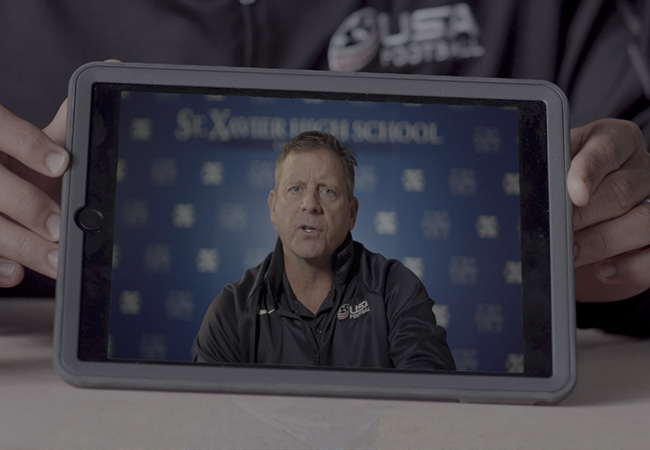
GET TRAINED BEFORE YOU STEP ON THE FIELD
The Youth Coach Course resources help coaches develop the whole athlete based on their athletes’ age and stage of development. Coaches who finish before they step on the practice field are putting the player first, by investing in their own ability to teach better.
“I wholeheartedly believe in the Football Development Model … Forget the game, forget the fact that we're playing football, this is for their development, for their benefit and that Football Development Model helps that whole process."
COACHING PLAYERS IN THE 21st CENTURY
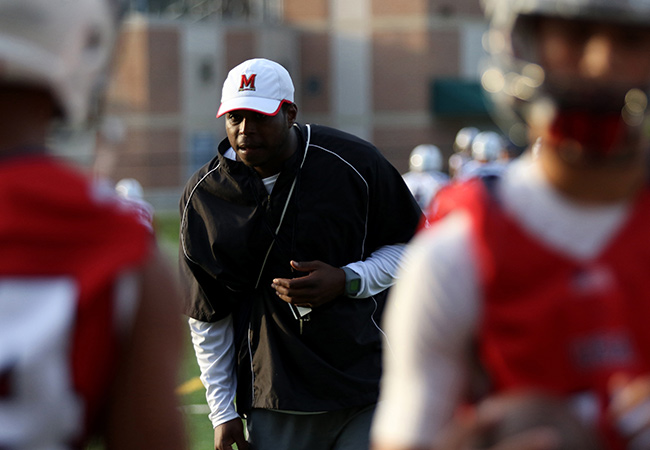
DEVELOPING THE WHOLE ATHLETE
Football is about more than just blocking and tackling. The game offers an athlete so much more in terms of character development, health and wellness and the valuable lessons of working with people of different skillsets.
To address this, the principles from the model were added to USA Football’s coach curriculum to provide training and resources to help coaches better connect with and develop the complete person. Below you’ll see a preview of what coaches will learn.
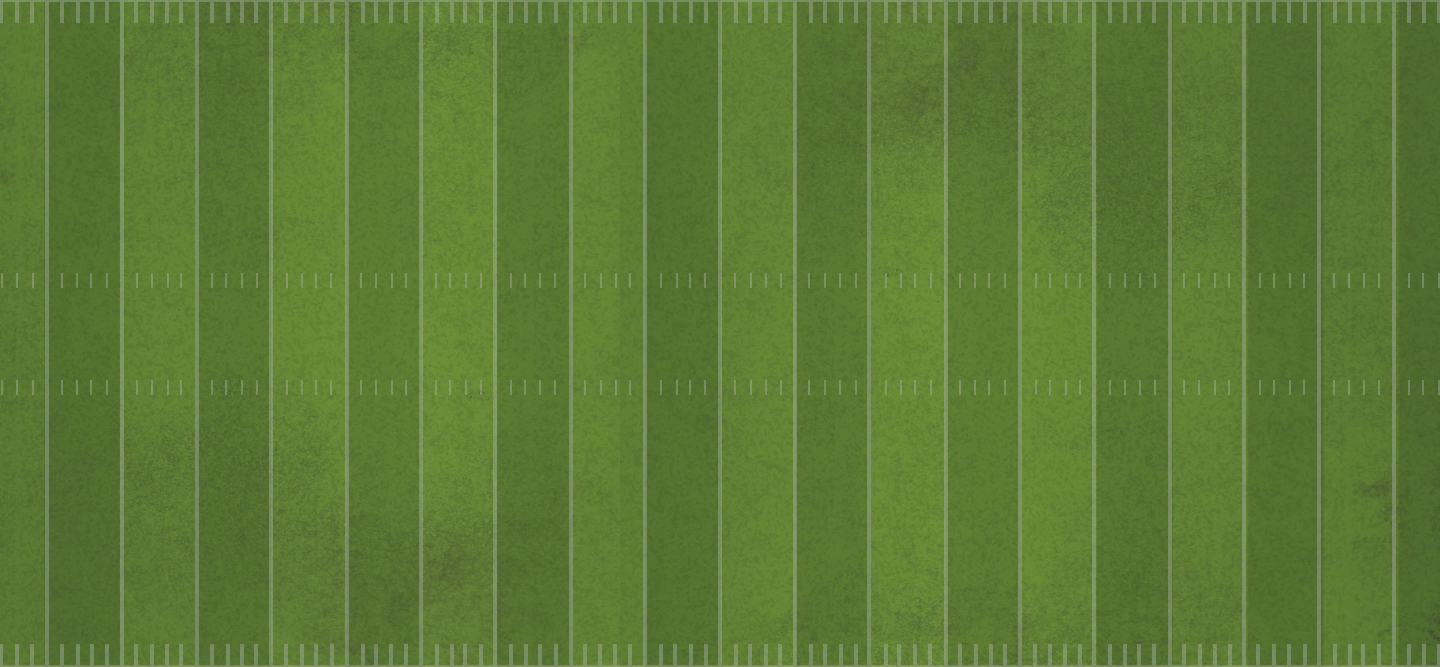
SKILL PROGRESSIONS
Teaching the right aspects of a skill at the right time keeps sports fun and fulfilling. This outlook avoids overwhelming athletes while helping them improve at a steady pace. Coaches who complete the Youth Coach Course will get manuals and guides to teach skills in a progression.
Starting with a step-by-step approach for each skill helps athletes achieve success before adding complexity. Once the basics of a skill are mastered, the skill progressions add coaching points that help an athlete develop and compete at a higher level to achieve more success.
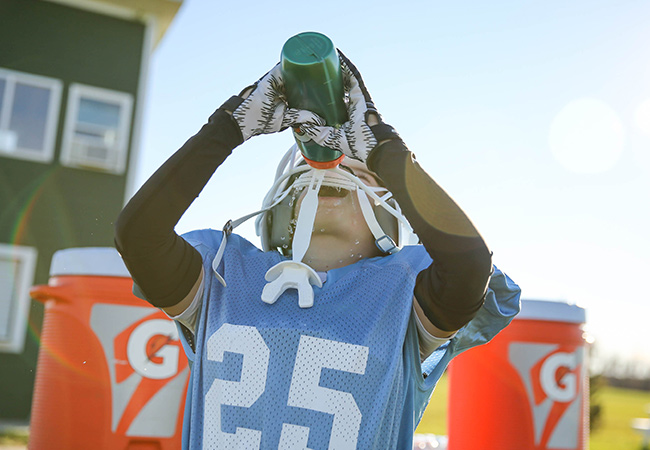
ATHLETE HEALTH & WELLNESS
It's not enough to make football players better at football. The model builds upon the life-long values and lessons of the sport by going beyond teaching football skills.
Football creates opportunities to help athletes advance their thinking, feeling and behaving abilities. USA Football’s coach curriculum provides resources to guide that growth with teaching insights to help coaches meet an athlete’s cognitive, social and emotional needs.
“The Football Development Model (FDM) is cutting-edge. The depth of content, the quality of the corresponding materials and educational offerings are the new standard for National Governing Bodies.”
WHAT COACHES ARE SAYING
Coach support for the concept of proper skill development can be found every level of the game. Watch what they all have to say about the impact they’ve experienced in their pilot leagues or expect to see in the future.
SEAN MCVAY ON THE MODEL AND QB COLLECTIVE
PAC-12 COACHES ON SKILL PROGRESSIONS









